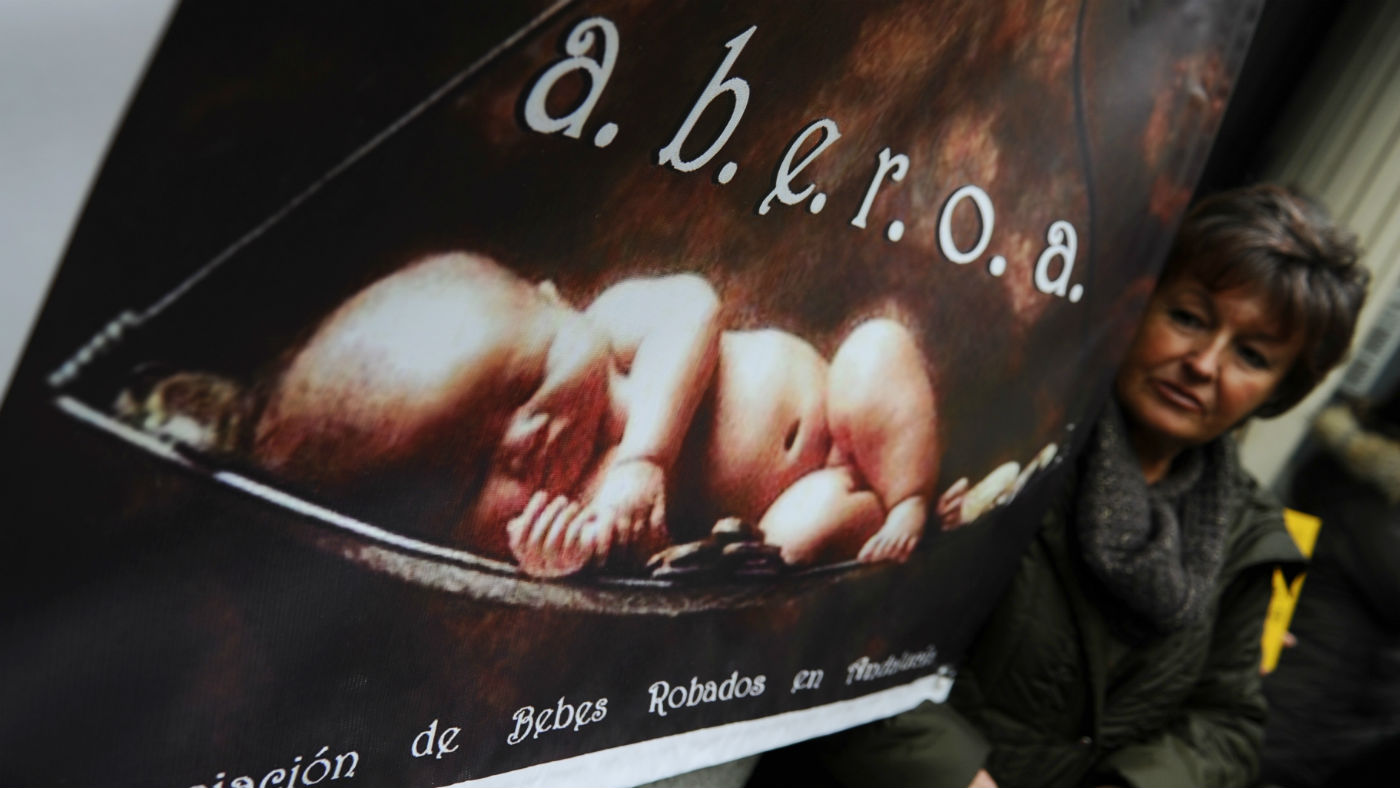Trial to expose Spain’s 300,000 stolen children begins
85-year-old doctor first person to be charged over Franco-era baby scandal

A free daily email with the biggest news stories of the day – and the best features from TheWeek.com
You are now subscribed
Your newsletter sign-up was successful
An 85-year-old gynaecologist is to become the first person in Spain to stand trial in connection with the alleged theft and sale of hundreds of thousands of children during and after the Franco regime.
Dr Eduardo Vela arrives in court today charged with the abduction and illegal adoption of a new born girl in 1969, in what is being seen as a test case that could trigger wider investigations into the scandal.
Victims’ groups claim as many as 300,000 babies were stolen and sold under the dictatorship of General Francisco Franco between the end of the Spanish Civil War in 1939 and the years after his death in 1975. Many were taken from Republican families and given to those loyal to the regime.
The Week
Escape your echo chamber. Get the facts behind the news, plus analysis from multiple perspectives.

Sign up for The Week's Free Newsletters
From our morning news briefing to a weekly Good News Newsletter, get the best of The Week delivered directly to your inbox.
From our morning news briefing to a weekly Good News Newsletter, get the best of The Week delivered directly to your inbox.
Franco remains a contentious figure in Spain, and the role of the Catholic Church in supporting the regime and facilitating the sale of children has led some to suggest many would prefer to bury the past.
In 2008, investigating Judge Baltasar Garzón estimated that 30,000 children had been stolen from families considered politically suspect by the Franco regime after the civil war.
But the BBC says “little was known about the private trafficking of babies that continued in the 1960s until two men went public with their story in 2011”
One of these, Antonio Barroso, who had been sold by a priest in Zaragoza as a child and founded the association Anadir (National Association for Irregular Adoption Victims), calculates that 15% of adoptions in Spain between 1965 and 1990 were the result of babies being taken without consent from their biological parents.
A free daily email with the biggest news stories of the day – and the best features from TheWeek.com
It led to more than 1,000 Spanish families launching a campaign seeking lost children, siblings or birth parents.
In 2011, when news of the scandal first broke, El Pais revealed how Spain’s stolen children network operated, implicating priests, nuns, doctors and government officials.
The paper said the decades-long trade in babies involving hospital staff and Roman Catholic Church-run children's homes was active “not only in Spain, but had an international dimension to it”. Childless couples in the US, as well as Central and South America, would also come to Spain to circumvent adoption procedures.
Last year, the then-Popular Party-led government signed an agreement with the left-wing Podemos to invest €100,000 in a digital platform to investigate DNA data related to Spain’s stolen baby scandal.
But as the landmark trial finally begins, victims of Spain’s massive stolen baby scandal “are asking why it has taken so long for justice to shine some light into this dark chapter of the country’s history” the Daily Telegraph reports.
-
 The ‘ravenous’ demand for Cornish minerals
The ‘ravenous’ demand for Cornish mineralsUnder the Radar Growing need for critical minerals to power tech has intensified ‘appetite’ for lithium, which could be a ‘huge boon’ for local economy
-
 Why are election experts taking Trump’s midterm threats seriously?
Why are election experts taking Trump’s midterm threats seriously?IN THE SPOTLIGHT As the president muses about polling place deployments and a centralized electoral system aimed at one-party control, lawmakers are taking this administration at its word
-
 ‘Restaurateurs have become millionaires’
‘Restaurateurs have become millionaires’Instant Opinion Opinion, comment and editorials of the day
-
 Epstein files topple law CEO, roil UK government
Epstein files topple law CEO, roil UK governmentSpeed Read Peter Mandelson, Britain’s former ambassador to the US, is caught up in the scandal
-
 Iran and US prepare to meet after skirmishes
Iran and US prepare to meet after skirmishesSpeed Read The incident comes amid heightened tensions in the Middle East
-
 Israel retrieves final hostage’s body from Gaza
Israel retrieves final hostage’s body from GazaSpeed Read The 24-year-old police officer was killed during the initial Hamas attack
-
 China’s Xi targets top general in growing purge
China’s Xi targets top general in growing purgeSpeed Read Zhang Youxia is being investigated over ‘grave violations’ of the law
-
 Panama and Canada are negotiating over a crucial copper mine
Panama and Canada are negotiating over a crucial copper mineIn the Spotlight Panama is set to make a final decision on the mine this summer
-
 Why Greenland’s natural resources are nearly impossible to mine
Why Greenland’s natural resources are nearly impossible to mineThe Explainer The country’s natural landscape makes the task extremely difficult
-
 Iran cuts internet as protests escalate
Iran cuts internet as protests escalateSpeed Reada Government buildings across the country have been set on fire
-
 US nabs ‘shadow’ tanker claimed by Russia
US nabs ‘shadow’ tanker claimed by RussiaSpeed Read The ship was one of two vessels seized by the US military